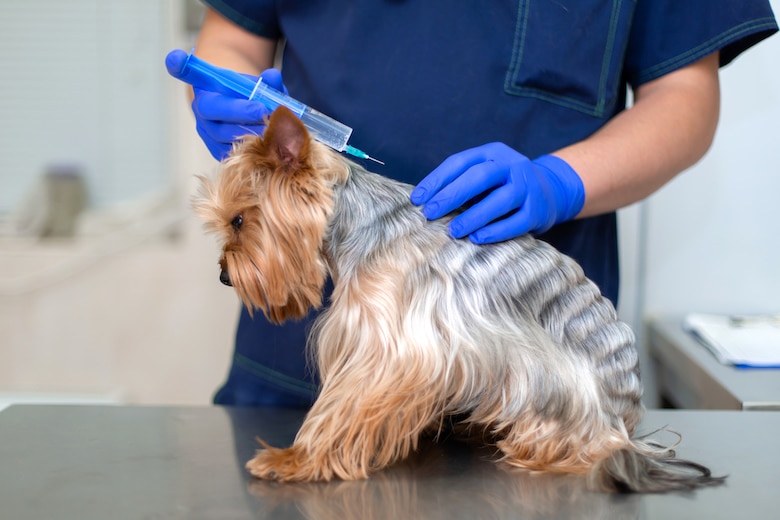What Pet Parents Need to Know About Leptospirosis in Dogs
For some dogs, summer is prime time for making a splash. Rivers, lakes and the ocean are popular spots for water-loving pups to cool off. But while it should be fun and games, water is a prime spot for leptospirosis, a bacterial disease spread through the urine of infected animals.
Humans and animals can both get the disease, which is also often found in soil and food, particularly in warmer climates.
In June, Companion Animal Parasite Council launched Pet Disease Alerts to inform pet parents of Lepto outbreaks.
“You can be aware of lepto in your area and remind yourself and your community that this is a problem in your area and people should get their animals vaccinated,” says Dr. Emilio DeBess, DVM, MPVM, president of the Companion Animal Parasite Council (CAPC).
DeBess shares what pet parents need to know aboutlepto in dogs.
Why is Lepto Dangerous?
Lepto in dogs can damage the kidneys and be fatal. Even if a pup survives, the disease can be life-altering.
“It can be a very severe disease in animals that can cause lifelong problems because it has the ability to affect kidneys and sometimes the liver,” Dr. DeBess says.
Dogs can pass lepto to humans. The disease can affect a person’s liver and cause liver disease, jaundice and lethargy.
What are the Symptoms of Lepto in Dogs?
Signs of lepto may seem benign at first.
“Initially, they show up as vomiting, not feeling well,” Dr. DeBess says. “Then, they tend to get worse.”
If your pet is throwing up or acting differently, Dr. DeBess advises calling the vet.
How is Lepto Diagnosed?
Lepto isn’t easily diagnosed.
“You have to go beyond trying to take care of the symptoms to further testing, blood tests to tell you whether the kidneys have been impacted at that point and that raises a flag for having lepto,” Dr. DeBess says. “Then, you follow that up with another test for lepto.”
It’s important to get the diagnosis, and the sooner the better, to protect not only your dog but others.
“If the dog was sick and you took him to the park, he has the ability to affect other animals in the park … or humans,” Dr. DeBess says. “Sometimes, we don’t protect ourselves the way we should, and there’s a possibility for cross-contamination.”
Treatment includes fluids and antibodies. If the dog may have infected other animals, vets will ask you to contact trace so other pet parents can get their pups tested.

Photo: Kateryna Kukota/Getty Images
How Can I Prevent Lepto in Dogs?
DeBess says prevention is the key to success.
“Vaccinate, vaccinate, vaccinate,” he says.
Limit exposure to stagnant water at dog parks and lakes, particularly if your area is a hotspot. Keep your eye on the Pet Disease Alerts’ map at https://petdiseasealerts.org to track whether there is an outbreak in your area.
Featured Photo: Chalabala/Getty Images
Read Next: Which Vaccines Are Most Essential for Dogs?




